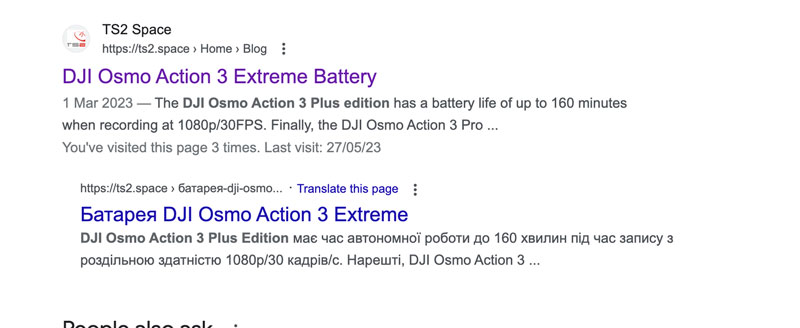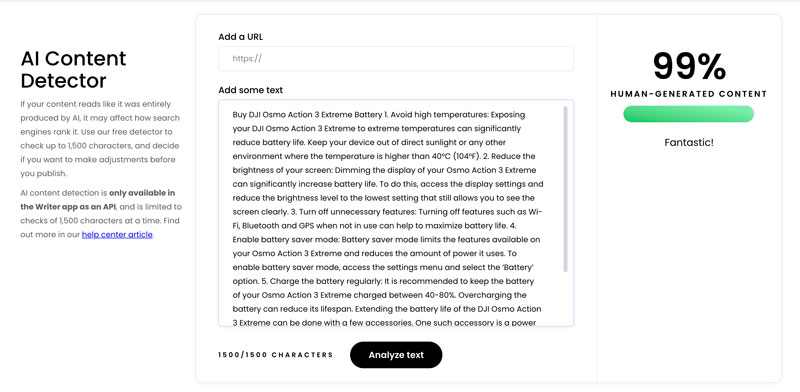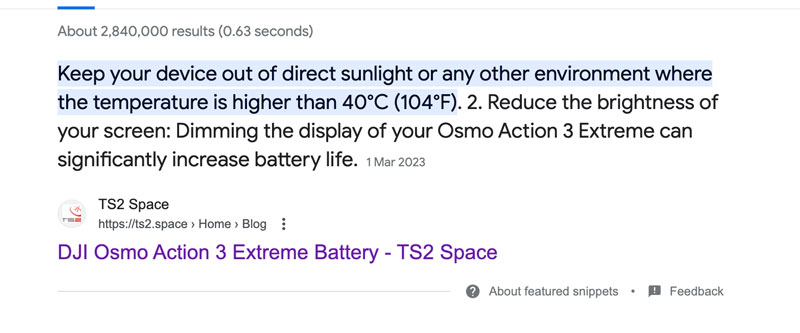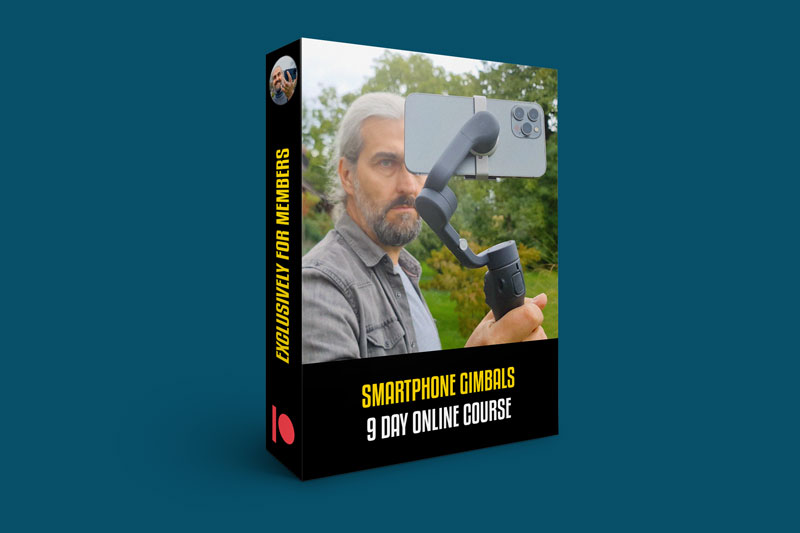Google Just Recommended this AI Written Article to Me & it’s Full of Fiction
I’m a YouTuber & blogger who reviews cameras, particularly smartphone cameras (and related accessories).
Right now, I’m in the middle of creating a complete guide to using a DJI Osmo Action 3 action camera for my YouTube channel. The way I go about this is to watch a lot of tutorials, investigate the camera, try it out, read articles, I even read the manual. I’m almost finished with the script for this one. But I thought it would be useful for people to know how to go about reducing battery drain.
I included all the stuff I already knew but I thought I’d Google it to see if I could find any more tips out there in the bloggerverse. So I Googled “how to save battery power dji osmo action 3”.
The top result was what Google calls a “featured snippet”. This means Google tries to give you the information you need without you having to actually click and read the article. This might seem like bad news for bloggers, except that at least you get to be the top article. Therefore the person Googling is more likely to click on your article than anyone else’s.
Which is exactly what I did.
I wanted to see if there were any more tips contained within this article. As it happens, the answer contained within the snippet was good advice and factually correct. Unfortunately, the rest of the article was not.
Clicking through to the article, I found a unremarkable looking website, crammed with Google ads. Nothing strange about that. Our site (the one you are reading now) also contains Google ads. I continued to read…
Tip 2 was to reduce the brightness of the screen. Again – good tip.
Tip 3 was: “Turn off unnecessary features: Turning off features such as Wi-Fi, Bluetooth and GPS when not in use can help to maximize battery life.”
OK Computer
I head to my DJI Osmo Action 3 and search the settings. I cannot find anything which allows you to switch off the WiFi or Bluetooth.
At that moment, I suddenly realise I’m probably reading an article written by AI. How do I know? Because I’ve tried to get AI like ChatGPT and Google’s Bard to write articles. They can’t do it because the they don’t know the difference between fact and fiction. Both of them make stuff up. When AI does this it is known as AI hallucinations.
Nobody knows how to fix it. And in my experience this isn’t a rare thing. If you ask AI a very specific question (eg: how long does a DJI Osmo Action 3 battery last?) you have a good chance of getting a correct answer. But ask it to write a whole article and you will almost certainly get 50% total fiction (at least). Especially if you are asking for an article about a difficult subject.
Anyway, I go to the DJI website to find out whether it is actually possible to switch off WiFi and Bluetooth. It’s not possible – confirmed.
Time to look at this article again.
Now I find a section which claims to compare the different models of DJI Osmo Action 3.
Except… there is only 1 model. The AI written article claims there is such a thing as a “DJI Osmo Action 3 Plus edition”. But this model does not exist. Google it with speech marks and this is what it comes up with:

Only one result. You guessed it – the fake AI written article.
The article compares this fake edition to the “DJI Osmo Action 3 Pro edition” (doesn’t exist either).
OK, I check the way the article concludes because AI tends to wrap things up the same way every time.

Yep. This is exactly how AI tends to finish talking (especially Bard), even when you ask a simple question. By the way, the osmo Action 3 does not feature a “unique battery-level indicator”. Nor is there such a thing as a Osmo Action Extreme.
AI Hallucination
As you can see, this whole article is full of totally made up stuff. Which is bad enough. But what really got me was that Google had pushed this article to the top of the rankings.
I tried feeding the article into an online AI written text detector. This was the result:

The AI content detector claims this is 99% human. I promise you it really isn’t. This is so clearly AI written and will be obvious to anyone who has worked with ChaGPT or Bard to generate text.
So this article will have been written in about 30 seconds. Copied and pasted into this website by the owner. And finally picked up by Google and promoted so that the owner of the site earns a few dollars for this nonsense (OK some of it was true).
Now, think about this: while AI like ChatGPT isn’t yet connected to the internet, AI like Google Bard is. And guess where it gets its answers from?
That’s right – the internet. Which means we could rapidly find ourselves in a feedback loop of disinformation. If I ask Bard about all the different models of DJI Osmo Action 3 cameras, it will scrape the AI hallucination from this AI written article (after all, Google is recommending it for containing good solid info) and present it to me as fact.
Is this a sign of things to come? Will this only get worse? Or will Google work out a better way to detect this AI.
Simon Horrocks
Simon Horrocks is a screenwriter & filmmaker. His debut feature THIRD CONTACT was shot on a consumer camcorder and premiered at the BFI IMAX in 2013. His shot-on-smartphones sci-fi series SILENT EYE featured on Amazon Prime. He now runs a popular Patreon page which offers online courses for beginners, customised tips and more: www.patreon.com/SilentEye



